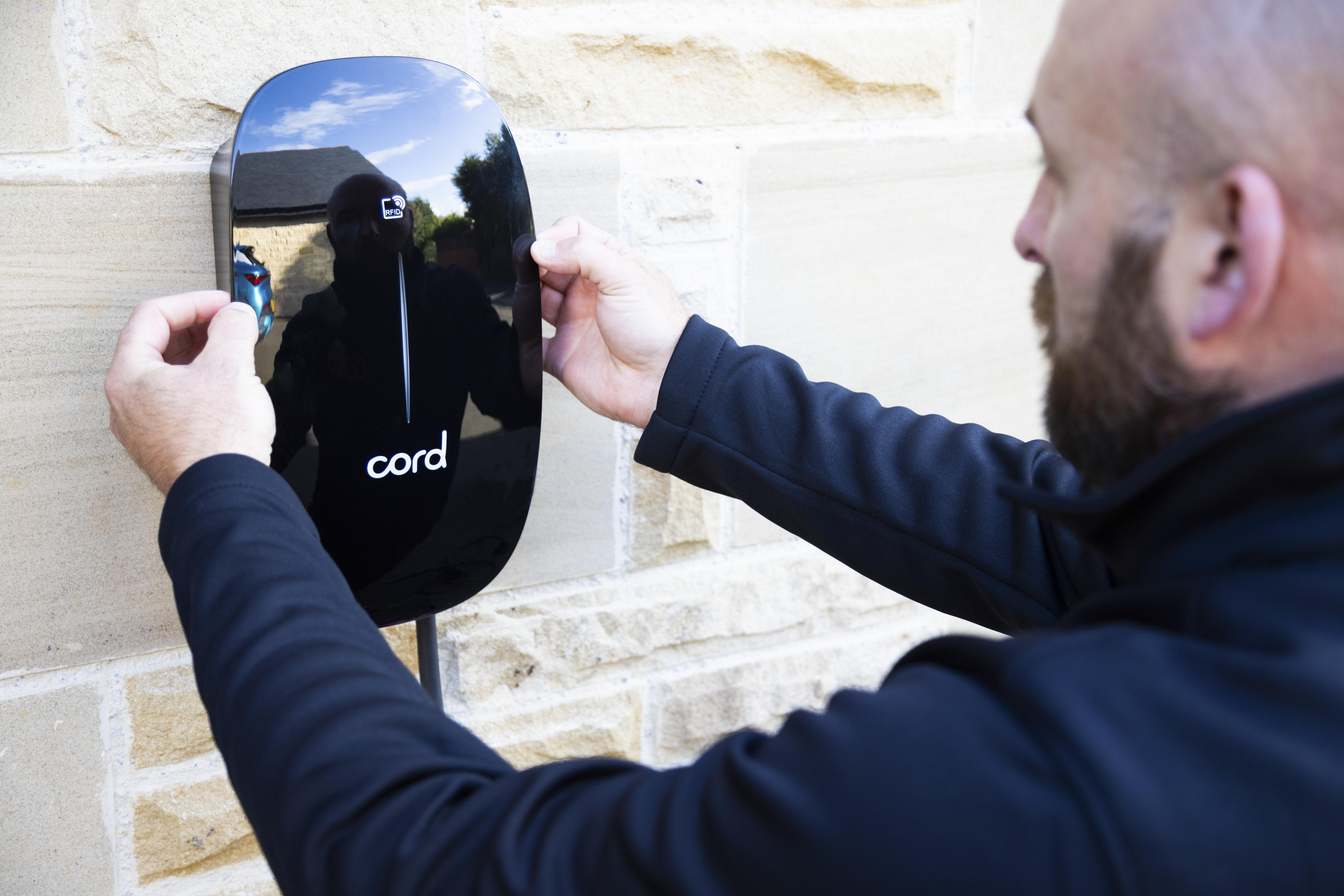Electric car home charging guide
Making the transition to an electric vehicle (EV) is an eco-friendly decision that will help reduce your carbon footprint and benefit the environment.
Before getting one, you’re probably wondering how electric vehicles are charged. In this guide, we’ve got everything you need to know.
Charging an electric car at home
One of the major benefits of electric vehicles is that they’re generally cheaper to run, with electricity a more cost-efficient option than petrol or diesel. But how do you charge an electric car?
Most electric car owners use a home charging point. These dedicated charging points are placed in the location where you park your car, so your car can be charged whenever you’re not using it.
They’re weatherproof and designed for continuous charging.
Some electric cars also come with a standard three-pin charging cable, but we’d advise against using these as they charge slowly and are not specially designed to handle high charging loads.
Cost of EV charger home installation
Of course, most of us don’t have a specialised charging point. Instead, these need to be installed by a qualified electrician.
Electric car charger home installation costs in the UK can vary, but we’ve teamed up with Cord to provide home EV charging points and installation at affordable prices.

Find out more about home EV charging points
Charging electric cars in public
It’s not just at home where you can charge an electric car. There are public charging points all over towns and cities, and these provide a convenient way to top up the battery.
Finding these public points is easy with lots of apps displaying their locations. Many of these apps also have features that allow you to pay digitally.
For those moments when you need a bigger charge, there are also rapid chargers. These are commonly found at motorway stations and can boost your range by 100 miles in as little as 30 minutes.
How long does it take to charge an electric vehicle?
A common electric vehicle myth is that charging takes forever. You’ll plug it in and then be waiting days before it’s charged, but this simply isn’t true. Most people will charge their car overnight - with a full charge taking around 8 hours.
Charging speeds for electric cars are measured in kilowatts (kW). Each charging point has a maximum charging speed per hour, with the most common home charging speed being 7.4kWh (this is about the maximum that most home grids can handle).
Public rapid charge points can reach around 43-50kW, but you'll pay a premium to get this speed.
Some cars have limits on which charging speeds they can accept, so be sure to check this before choosing your charging point.
How often do you need to charge an electric vehicle?
You can charge your car as much as you like!
Some people choose to let their battery run down before charging it, while others plug it in every night so that they have a fully charged battery at the beginning of each day. When it comes to charging an electric vehicle, it’s best to do so whenever is convenient for you.
However, it's recommended that you allow the battery to fully discharge before recharging, and that you only charge to 80%, as these actions can both extend a battery’s life. Most cars are pre-set to charge to 80%, but you can manually override this in the app that connects to your home charger. You can also use the app provided with Cord chargers to set your charging preferences.
Did you know - Electricity rates are usually cheaper at night meaning you could save money by charging at night instead of in the daytime. Many energy providers have off-peak tariffs and it’s worth researching to find the best tariff available. Any EV home chargers sold since 30th June 2022 are set up to charge in off-peak hours by default (although this can be user-overridden), so you should be saving automatically.
Extending your vehicle's battery life. Only charging a battery to 80% is believed to extend the battery’s life. For this reason, most high-voltage batteries will only charge to 80% but will display 100% charge on the vehicle’s dashboard. Battery life for high-voltage batteries can also be extended by allowing the battery to fully discharge before recharging.
Home charging kits
As well as a home charging point, you’ll also need an EV charging cable. This is what connects between your car and the charging point. To help, we’ve put together a handy guide to EV charging connectors.
You can find our full range of charging cables and connectors here.
10/23
